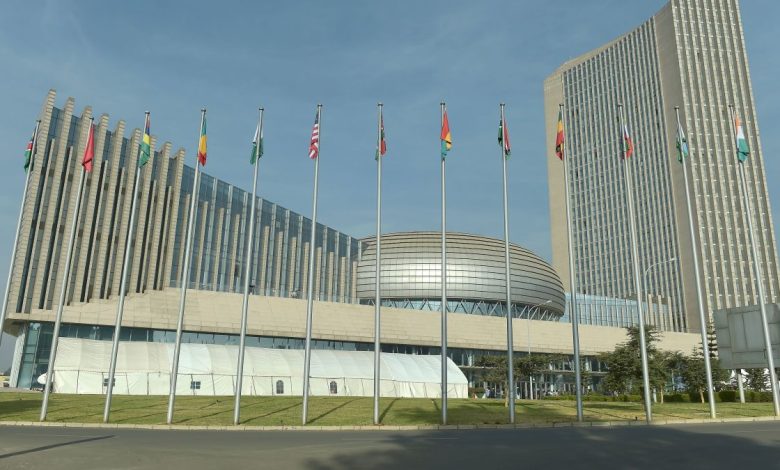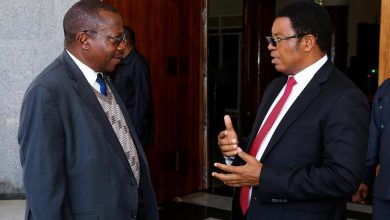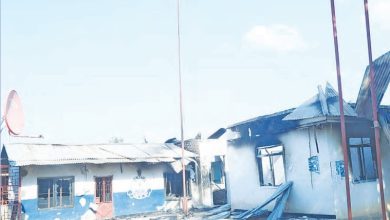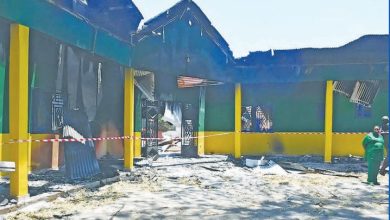How AU, ECOWAS come out with strong resolve on peace

ETHIOPIA: IN a powerful show of unity and strategic resolve, the African Union (AU) Peace and Security Council (PSC) and the ECOWAS Mediation and Security Council (MSC) concluded their second Annual Joint Consultative Meeting at the AU Headquarters in Addis Ababa, Ethiopia, on 16 May 2025.
The high-level Ambassadorial meeting marked a significant milestone in reinforcing collective efforts to confront the multifaceted governance, peace and security challenges afflicting the West African region.
The meeting was held under the spirit of Pan-African cooperation and marking the International Day of Living Together in Peace.
The meeting provided a critical platform to evaluate and build upon the outcomes of the inaugural joint consultative meeting held in April 2024 in Abuja.
It also coincided with the 50th Anniversary of ECOWAS – a momentous occasion celebrating five decades of West African resilience, integration and leadership in conflict resolution and mediation.
AU PSC and ECOWAS MSC used the opportunity to reaffirm their shared commitment to the African Peace and Security Architecture (APSA), the African Governance Architecture (AGA) and the AU Master Roadmap for Silencing the Guns by 2030.
These frameworks remain essential blueprints for addressing governance deficits, promoting constitutional order and preventing conflict across the continent.
The meeting recognised the historic role of ECOWAS in peacekeeping and democratic consolidation in West Africa, particularly through its interventions in Liberia, Sierra Leone, Ivory Coast, The Gambia and GuineaBissau.
The AU PSC praised ECOWAS for its early warning systems, peacekeeping force and democratic governance protocols which have set the standard for regional conflict resolution. However, the meeting did not shy away from the grim realities confronting the region.
The Councils expressed deep concern over the political instability in Burkina Faso, Mali and Niger, whose formal withdrawal from ECOWAS in January 2025 represents a grave setback for regional integration, counter-terrorism and the protection of citizens’ rights.
The Councils urged the three countries to expedite political transitions and reconsider their withdrawal, placing the well-being of their populations above short-term political calculations.
Both Councils sounded the alarm over the intensifying threat of terrorism and violent extremism, particularly in the Sahel and its potential spillover into littoral states.
The spread of terrorist networks, inflow of foreign fighters and unchecked arms proliferation were identified as existential threats to peace and development in the region.
ALSO READ: Prof Janabi elected WHO Africa Director
In response, the Councils called for the urgent establishment of a Joint AU– ECOWAS Threat Fusion and Analysis Cell to strengthen intelligence coordination and strategic counter-terrorism efforts. The African Union Counter-Terrorism Centre (AUCTC) was designated as the lead coordinating body.
The Councils also endorsed the creation of a Youth Resilience and Digital Empowerment Initiative aimed at countering extremist narratives, promoting civic education and supporting youth-led peacebuilding.
Reiterating the decisions of the AU Malabo Summit (2022), the Accra Declarations and UN Security Council Resolution 2719 (2023), the two Councils committed to scaling up military, financial and political responses to terrorism.
They also underscored the urgent need to review and modernise existing AU instruments such as the 1999 Convention on the Prevention and Combating of Terrorism and its protocols.
The meeting raised the perennial concern about the lack of predictable and sustainable funding for peace support operations.
Commendation was given to the AU Commission’s efforts to utilise the Peace Fund Crisis Reserve Facility, but the Councils called for intensified efforts to unlock new sources of funding including private sector partnerships, continental banks and African philanthropists.
This aligns with the growing consensus that “African solutions must be backed by African resources.” Participants underscored the critical importance of restoring democratic governance and upholding the principle of zero tolerance for unconstitutional changes of government.
They emphasised the need for early warning systems to be more agile and connected, advocating for stronger synergy between the AU’s CEWS and ECOWAS’s ECOWARN, including real-time data exchange and rapid response capabilities.
Recognising that political exclusion and social marginalisation fuel instability, the Councils strongly advocated for inclusive governance, whole-of-society approaches and the meaningful inclusion of youth and women in peace processes.
In a world of multiplying crises, the 2nd Annual Joint Consultative Meeting delivered a bold message: Africa’s peace and security must be safeguarded through strategic unity, shared responsibility and uncompromising commitment to governance and constitutional order.
As the continent marches towards 2030, the AU and ECOWAS are determined to silence the guns not only in rhetoric, but in practice through action, resilience and solidarity.
At the high-level joint consultation between the African Union Peace and Security Council (AU PSC) and the ECOWAS Mediation and Security Council (MSC), the United Republic of Tanzania was represented by the Permanent Representative to AU, Ambassador Innocent Shiyo.
He delivered a bold and timely intervention addressing the growing threat of transnational organised crime and violent extremism in Africa, particularly in the Sahel region.
Ambassador Shiyo commended the AU PSC and ECOWAS- MSC for convening the consultation at a critical juncture, where the convergence of organised crime and terrorism is eroding peace, undermining state legitimacy and threatening the dignity of African communities.
“No country on this continent is exempt. This is a continental threat requiring a continental response,” he stated.
Key messages from Tanzania’s intervention: Strong solidarity with West Africa Tanzania expressed full support to the governments and people of West Africa for their resilience in the face of escalating threats from violent extremism.
The country underscored the importance of regional and continental unity in confronting these shared challenges.
Alarming evolution of criminal threats Ambassador Shiyo highlighted the increasing sophistication of criminal enterprises across Africa.
What was once motivated primarily by power and financial gain is now evolving into complex networks of criminal entrepreneurship, fuelled by access to illicit markets and the misuse of digital technologies including artificial intelligence.
The crime–terrorism nexus The Tanzanian delegation raised concern over the direct collusion between terrorist groups and organised criminal syndicates.
This nexus has contributed to drug and arms trafficking; human smuggling; illicit financial flows; illegal logging and fishing and digital exploitation of vulnerable systems.
Calls were made for action-oriented solutions to effectively counter this threat, Tanzania made the following recommendations: Strengthening State Presence: AU Member States should assert control over their territories through enhanced land, sea and air surveillance.
Operational Coordination: The AU Commission, AFRIPOL and other partners must collaborate to implement joint responses tailored to the geographical and logistical realities of criminal corridors, including mobile units and desert/port surveillance.
Intelligence Mapping and Interception: Enhance realtime mapping of key smuggling routes such as Lagos– Kano–Agadez–Tripoli and Sebha–Arlit–Gao, integrating migration, trade and law enforcement data.
Cross-border Security Cooperation: Encourage joint patrols, deployment of liaison officers and shared operational protocols across regional security services.
Legal and Institutional Reform: Urged AU Member States to domesticate and operationalise AU instruments and legal frameworks to ensure accountability and deterrence. Grassroots Vigilance: Emphasised the importance of community-based early warning systems, particularly in rural and border areas where threats often originate.
Call for unity and urgency Ambassador Shiyo concluded with a clear and urgent message saying: “The time to move from strategy to coherent, coordinated and concrete actions is now. We must speak with one voice and act as one front against terrorism and transnational crime.” Tanzania reaffirmed its strong commitment to regional peace, the rule of law and the sovereignty of African states.
The delegation pledged continued support to collective African mechanisms aimed at restoring stability in the Sahel and across the continent.





